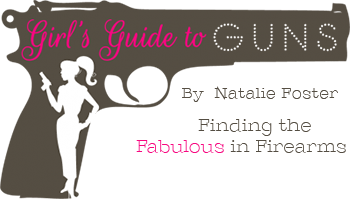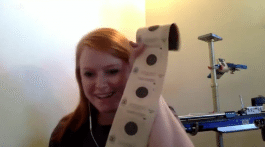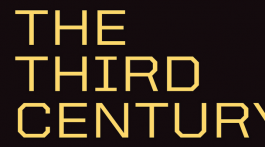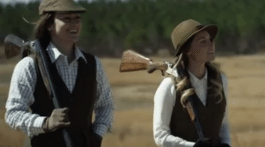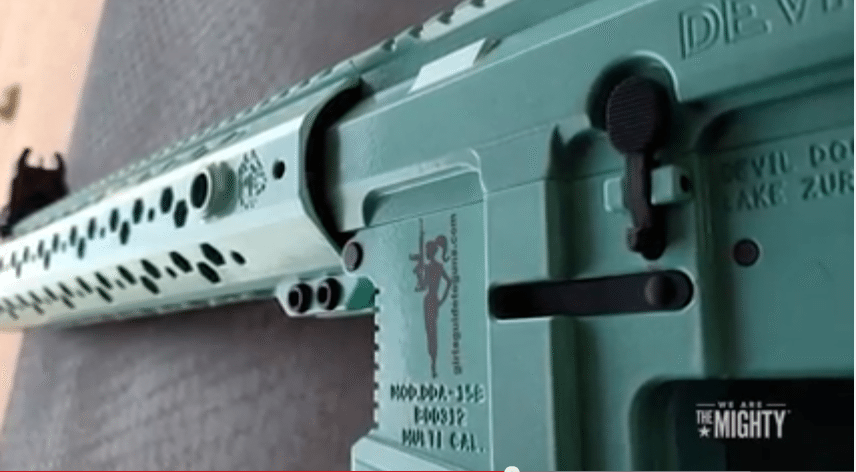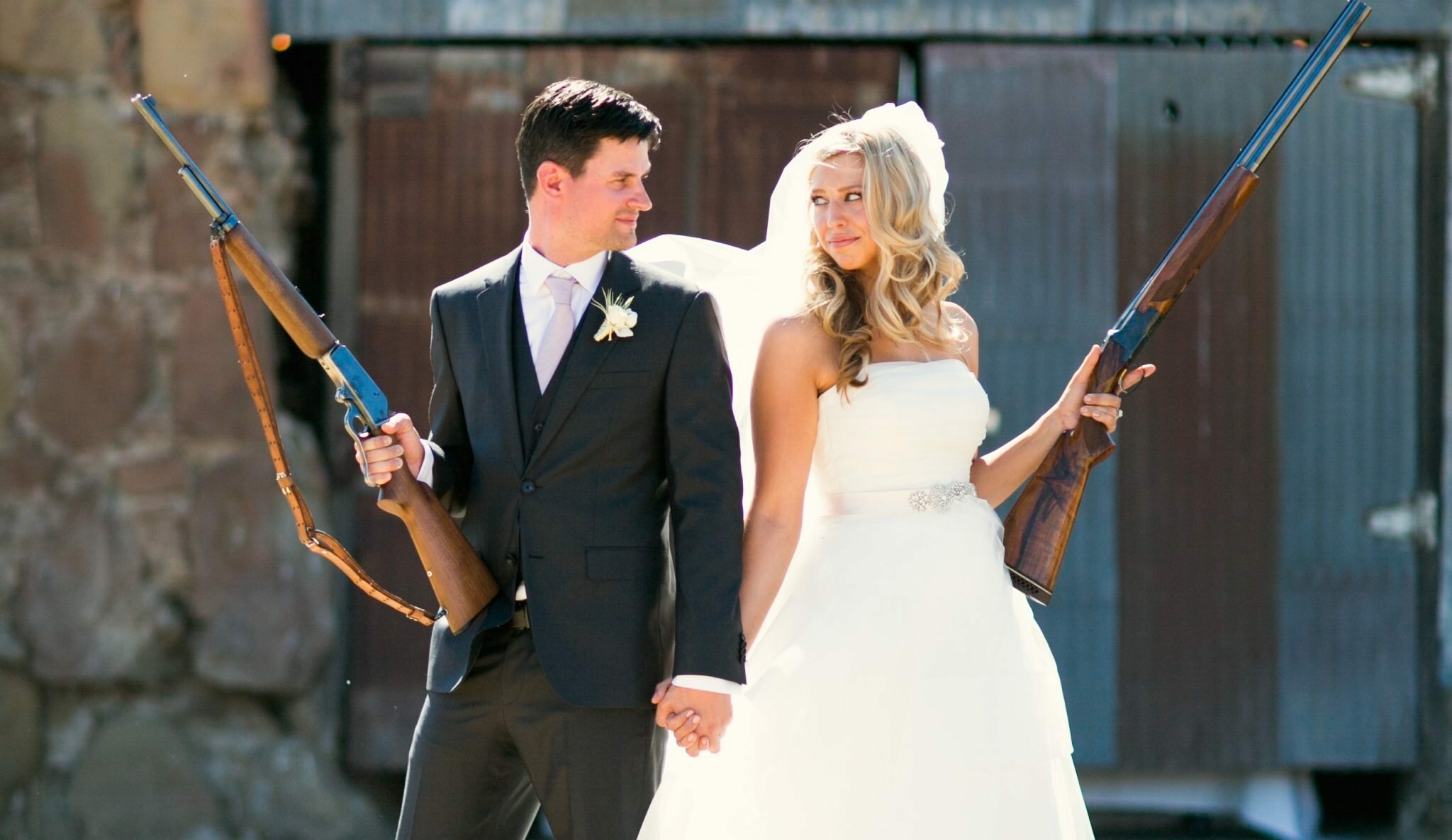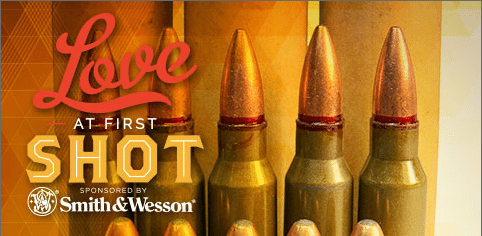Karen Bartuch, founder of Women’s Tactical Association, has been a valuable asset and friend to us here at Girl’s Guide. She shares the spirit of camaraderie and sisterhood that we are so passionate about and seek to promote in female shooters across the country. Karen took some time to talk with Natalie to share her knowledge of tactics and kick off our very first Tactical Week!
Natalie Foster: Karen, I’ve been looking pretty hard and I can’t seem to find a solid definition for “tactics”. How would you define it for someone who knows nothing about tactical training?
Karen Bartuch: Funny, I’ve recently looked it up because I say it so much that it somehow loses it’s meaning or I just take it for granted. The source I found said “tactics” is defined as, “small scale actions serving a larger purpose”. So it’s smaller parts and smaller strategies that work on the big picture. You’re doing little team movements, room clearing and that kind of thing to see if there’s a hostage inside- it’s a hard word to describe. I see it like plays if you were on a football team or basketball team. It’s different plays that you practice as a team. You can call different plays; for instance, you have a hostage rescue play, you have a close quarters battle play, it’s just different plays that you practice as a team that you call out based on what the circumstances call for. It’s not necessarily rehearsing, it’s more like you can read a situation and adapt properly. And you know your team well enough that you know what the one person’s gonna do and how you should react. You really need to trust your team members, too, because if you’re turning your back you need to know that your team member has your back in the opposite direction. It’s a hard word to define. It’s like “Leadership”. Everyone knows what it means but if you ask someone to define it, they’d probably have a difficult time with it.
NF: Talk a little bit about your personal history- your background.
KB: I went to Northwestern for my undergrad and out of college I had a couple of different sales jobs and I wasn’t too happy in Corporate America. My brother was a police officer and he loved going to work every day. He loved working out, he loved shooting and I thought, “That’s what I want.” I wanted to wake up and want to go to work every day. I was into fitness myself and I had gone shooting a couple of times and I thought the police would be a good thing for me. I wanted to do something where I actually felt like I was making a difference and selling pharmaceuticals or payroll and taxes really wasn’t making that difference for me. So I took the police test in 2001 and came on in 2002 and I’ve been there ever since.
NF: How many women are on the Chicago PD with you?
KB: There is about 3,200 of about 12,000. We’re almost one quarter female.
NF: At some point in there you started the Women’s Tactical Association. How did that happen? Tell me about it’s birth.
KB: It was a culmination of a couple of different things. I had started to go to training on my own. I wanted to be a better shooter and I knew we were going to the Glock system and I wanted to transition from my current weapon, which at the time was a Sig, so I started going to classes. I’d look around the room and I would be the only female in the class or one of two girls along with 50 guys. That was one reason. I was also starting to put together training for our SWAT team while I was working for the Superintendent. A lot of the training I was putting together really appealed to me. I thought, “I want to go repelling, I want to go shoot rifles.” I wanted to go do all the things I was sending them to do, so that was another reason. The final thing was that I was actually involved with a shooting on the job. The guy ran from the police and shot at two of our officers and he holed himself up in the basement of a large apartment building. He just had pockets full of ammo and he just kept reloading mags and he kept shooting at the police. I found myself in this situation and I really didn’t know the best way to handle it. I think Chicago Police Officers are good in that we are aggressive and we want to go after the bad guy and run right up to him. But in that situation, that wasn’t necessarily the best course of action. Had it not been for the guys on SWAT who showed up I think a lot of us would have ended up getting hurt because we wanted to run straight to where the shots were being fired, which is good on one hand but in that situation it was just not the right thing to do. A Sergeant from the SWAT team showed up and he had former military experience and the way he took control of that scene and all 50+ officers that were there – I said to myself. “This is what I want to do. I want to be able to get on scene and know exactly what I should be doing and make sure that I’m safe and everyone around me is safe.” So after that I called a meeting. I gathered a group together and created this organization, The Women’s Tactical Association. My Sergeant said, “You’ll be lucky if you have five people that show up,” and we had 30 women show up at the first meeting. Ever since then we knew we were on to something and we’ve had meetings and training since then.
NF: How long ago was that?
KB: That was June 25, 2009, the WTA Birthday.
NF: How many members do you have?
KB: Right now we have over 500.
NF: And who can join?
KB: Actually, this year we did do a civilian membership. Prior to that it was just law enforcement and military. But we do have a lot of civilians that want to train and they should be able to protect themselves as well, which is why we opened it up to them this year.
NF: Is it just for women or is it a male and female thing?
KB: Oh we’re definitely open to male members. We actually have quite a few. Probably because our training is the cheapest out there. A lot of it’s free and it’s really some of the best training that’s available. That was one of the things we wanted to do – keep the training affordable. I mean you could mortgage your house going to some of this training and the cost of ammo certainly doesn’t help, and you’re taking time off of work. We like to keep the prices down low. Of course, I’d rather be spending the weekend with my family, but for my job I know I have to keep up with what I’m doing. Shooting is a perishable skill. If you don’t do it every week or month or however often you need to do it, that skill is going to go away and when you need it, it’s not going to be there. We like to get your heart rate up, stress you out a little bit, maybe throw a flash-bang in so that you’ll be prepared for shooting under pressure.
NF: Tell me about the training. What kind of classes do you offer?
KB: We have four tenets that we adhere to. We focus on fitness, firearms, tactics and combat mindset. We have firearms training regularly. We have open range dates throughout the month where we do pistol or rifle. We also do various specialized classes – shooting is probably the main thing that we do. I would say that tactics is the next biggest thing that we try to do a lot of – close quarters battle, hostage rescue, room entry, ballistics shield – we try to do one of those at least one to two times a month. We also have some classes that you may not find anywhere else. For example, in June we’re having a lock-picking class. We’re going to learn about pad locks, door locks, safes. It’s going to be a lot of fun. With the fitness part, we have a lot of gals who teach martial arts or crossfit so we offer boot camp classes on Sundays at our Police Academy for anyone who wants to come and train. It’s a really good workout. It’s about an hour and a half long – it’s kind of a kick-your-butt cardio class with some good tactics in there, like hand-to-hand combat. I like to call it self-offense rather than self-defense because we’re not gonna wait for someone to come after us. We’re gonna be the ones that strike first. In some situations it’s ok to be the person to hit first. You can tell when someone’s going to attack you. We do a system that is a form of Wing Chun Kung Fu. We’ve adopted this system because it doesn’t really matter how big you are or how strong you are, this stuff just works. I’ve used it, we have other girls who have used it on the streets and it just works. You don’t have to be the biggest guy, you don’t have to have tons of muscle – it’s all skeletal, so if you can know how to do it properly, it just works.
NF: Where do you see the WTA going? Where is it headed?
KB: One of the goals for this year was to grow the membership. We had a great offer from 5.11 where you got the knife, a hat and a coupon. That drew a lot more members. Hopefully it’s also because we’ve gotten the word out. People now realize we’re not going anywhere. Another goal is to get many of our members trained up as instructors. Especially in firearms. We did an internal poll and what we found is that females want to be instructed by other females. Especially when it comes to firearms. When I was training we had some instructors that made firearms just an unpleasant thing. After we left the academy I was happy to never go back to the range again just because of the way the training was. It’s a totally different mindset now. We love shooting. Another thing we’ve been getting into is product development – just kind of by accident. We had a product development meeting with 5.11 out at their headquarters in Modesto, CA, and talked with them about some improvements that could be made on their current products. They were great; they really listened. They put out a great spring catalog with a lot more women’s products. We’re actually in it, too. Their tactical pants are great. They used to be very high waisted, but they’re great now. We asked them to lower it because, of course, part of the reason is aesthetics, but if you’re wearing those all day it’s not comfortable. And if you have to unholster, you’re weapon’s not really in a good position because your arm has to be bent up high to get your weapon out of its holster. It really came down to function and they listen. They have a great Women’s Tac Lite pant that we love. We have some other stuff on the horizon like a resources page and a recommended reading list and book discussion group. We’re following the Marine Corps model as far as that goes. We really want to change the mindset not just of females but of everyone. You don’t necessarily have to want to be on SWAT, but if you work in a city like Chicago, no matter where you go you’re gonna need some tactics whether you like it or not.
NF:You think it is important for even the casual shooter to get out there and do?
KB:Sure, why not? Anyone can come home to find that someone’s broken in to your home. If you want to learn how to protect yourself then I’d say that tactics is definitely something you’d want to entertain.
NF: You know, when I’ve done it I walk away thinking, “This is just so fun!” And it’s a great work out in itself. You feel so accomplished at the end of the day. You know you’ve gained so much knowledge and skill – but again, you do have to keep it up.
KB: Oh yeah, definitely. I’m reading Dave Grossman’s book on combat and that’s what he says. You’ve got to keep up the training because once your mid-brain takes over you forget pretty much everything you’ve learned. It’s gonna be pretty much all muscle memory. So if you haven’t gone there before physically, you’re not gonna be able to do it when it all hits the fan.
NF: How often do you use your tactical training?
KB: As a police officer, every single day. I’ve switched jobs from working in the Superintendent’s office to Intelligence, where I used it every day because we served a lot of search warrants, and now I’m back on patrol. I’m by myself in a car and every day I get calls – someone inside an abandoned building, burglaries – I use it all the time.
NF: Wow, so you didn’t really have those tactical resources available to you, so you went out and sought it.
KB: Well, they would offer things sporadically every now and then at the department but nothing on a regular basis. And really, I had no idea that this whole tactical community existed. Once I broke into that and found other like-minded people it was just amazing.
NF: I know you are based in Chicago and that’s where you hold all your training, but do you plan on expanding your training to any other cities? Specifically, and selfishly, Los Angeles, of course?
KB: Just pick out a range and we’ll come out there. Yeah, we get a lot of requests especially from Seattle, Washington. We’ve been getting requests to come out there. There are some gals up there who actually want to start their own chapter. I think that’s something we definitely need to get together. One thing I’d like to do is put together a packet on how you can start a chapter or your own group within your own town. I would love to be everywhere all at once but this is a full time job on top of my other full time job. It doesn’t take much and if we could support them somehow from Chicago then we certainly would. I would love to travel all around the country and train people. It’s a blast. It’s hard work, but it’s a blast and it’s so needed.
NF: This has been so interesting, Karen. Thank you so much for your time. Any final thoughts?
KB: I just think it’s important to be doing this and that we change minds, both in men and women. We love what you are doing, too. We’re making history here! And no matter who pulls the trigger, the effect is the same.
Here’s to our friend Karen! She’s the modern day Joan of Arc, without question. And a special high-five goes out to all of the wonderful and brave ladies over at WTA. We look forward to great things from you! We’d especially like to thank our fantastic mutual friend and very favorite novelist, Brad Thor, for the introduction. You were completely right. -nf
